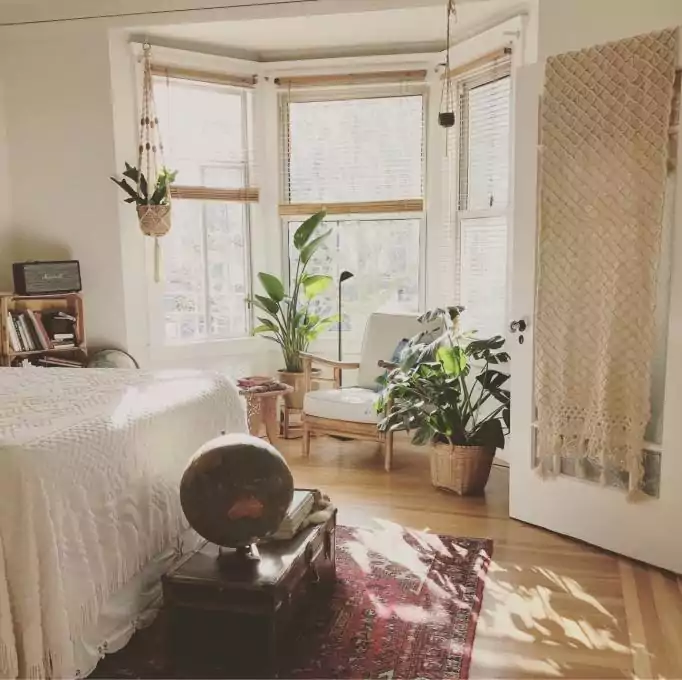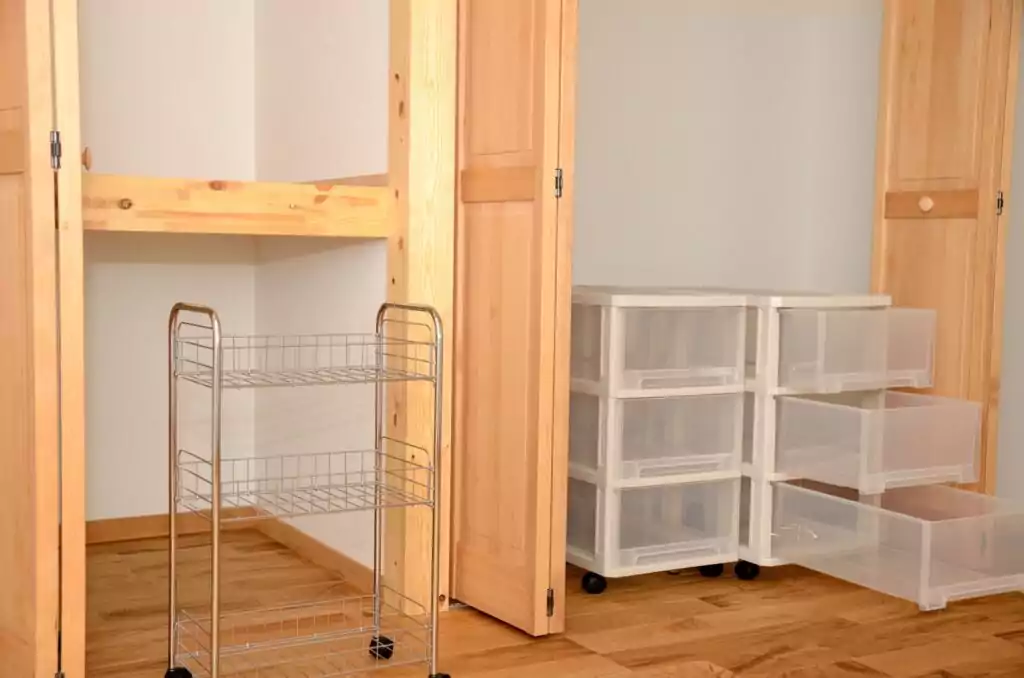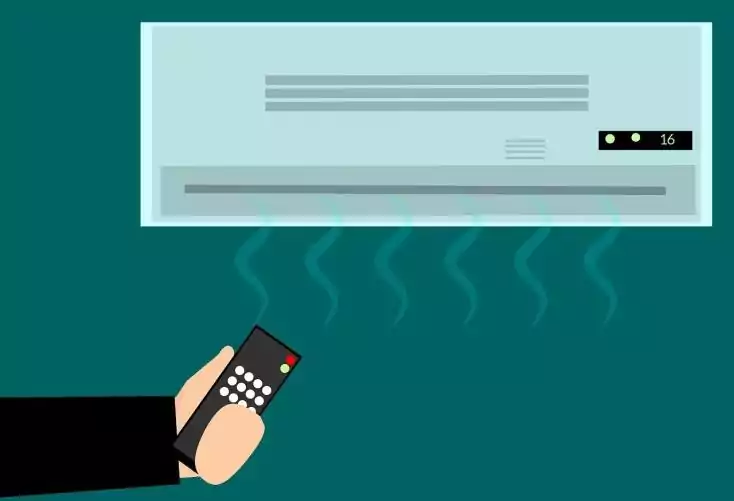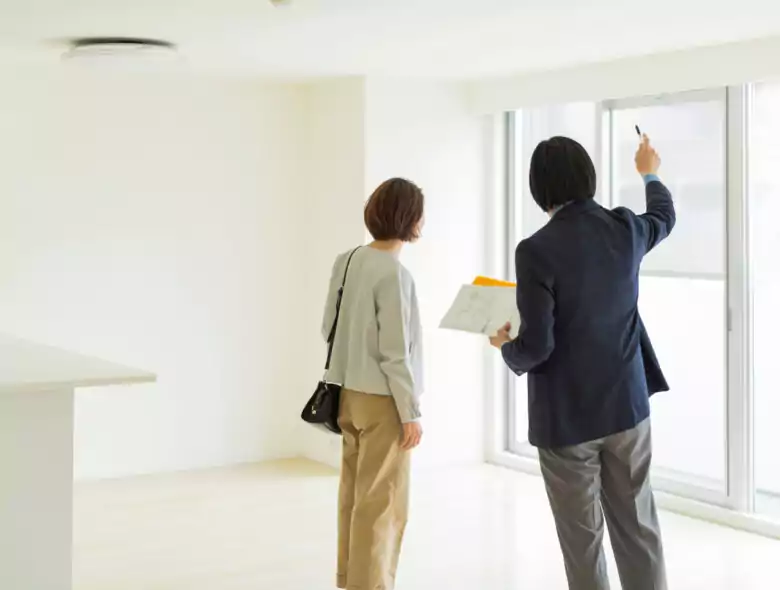House and apartment hunting can be a stressful experience, especially if you’re planning to move in with a partner or are moving as a family with children. There are numerous factors to consider, some of which include:
- Rent / monthly budget
- Neighborhood and access to shops
- Property size
- Commuting distance to work / school
According to statista.com, 42.7% of Japan’s average households lived in apartments as of 2015. About 110 million of these people live in apartments concentrated in the big cities of Japan such as Tokyo and Osaka as reported by Japan City Tour. These aforementioned city apartments are usually an average of 60㎡ to 66㎡ or smaller due to the lack of space and increasingly expensive land prices.
Prices for these rental properties don’t come cheap either, especially in the metropolitan areas. As of September 2023, the average rent for a 1-bedroom apartment in the city center can start around ¥90,041.46 while a 1-bedroom outside the city center can start around ¥57,951.79, numbeo.com revealed. For those with families or looking to potentially start a family in the future, rent for a 3-bedroom apartment in the city center starts at ¥193,633.80 while a 3-bedroom for a family outside the city center can start at ¥122,114.05.
When looking for a rental property, you’ll have to bear all the above in mind while doing your research to minimize any potential irregularities and red flags with not only the apartment but also with the real estate organization or landlord you’ll be leasing with. You can do this by looking at the real estate organization’s website and reading reviews online by present and former tenants; or conducting an interview with the landlord and if the website or interview passes muster, you can then move on to making an appointment to view the apartment.
Why Viewing An Apartment In-Person Is Important
Viewing an apartment in person is one of the best ways to see with your own two eyes, whether or not the apartment meets your requirements and needs. You can also use the opportunity to take stock of any issues the apartment, property, and neighborhood might have. Luckily, real estate organizations such as Village House allow you to make an application online to view the apartment that interests you, making the process, quick and easy. They encourage prospective tenants to “inspect the property, check out the size and lighting of the rooms, take a look at its surroundings, and feel the atmosphere of the area.”
Some things to watch out for when you’re viewing an apartment to rent include:
1. Thin Walls

Nobody wants to hear their neighborhood going about their daily routine or become an unwitting participant in their latest Netflix binge. If your neighbor has kids or pets, you definitely want to ensure that the walls are thick enough to muffle the inevitable noise.
When viewing an apartment, try to do research beforehand on what kinds of construction materials the apartment building is made out of. Concrete is always a good indicator that an apartment will have decent soundproofing as the material is designed to reflect noise back to the source while also absorbing some of the energy created from the sound. Feel free to ask the landlord or realtor about the construction of the building as well during your apartment viewing.
You can also conduct your own test by tapping on the walls of the apartment you’re interested in to see if it sounds hollow and/or feels thin and flimsy.
Another surefire way to check for thin walls is to arrange for your apartment viewing to be after work hours. This is when people tend to be home and unwinding from work by taking a shower, making dinner, getting the kids to bed, etc. You can use this specific time to see whether or not a lot of noise leaks into the apartment you’re viewing.
2. Not Enough Sunlight

The direction your future potential apartment faces will affect how much natural light and warmth you’ll get, the latter of which will become very important come winter. In general, south-facing apartments are the most sought-after as these units will provide the most ample amount of sunlight throughout the day. West-facing apartments are also a good alternative, especially in the summer.
Listings by real estate organizations such as Village House will actually tell you what direction the apartment is facing so this makes it easier for you to choose an apartment with abundant natural light if this is on your list of requirements. Just be sure that the light is not blocked by another apartment building, a common issue in compact cities like Tokyo and Osaka where buildings tend to be built close to each other to maximize space.
3. Not Enough Storage Space

Are you a minimalist or a bit of a pack rat? If you pick the latter, then you’re going to want and need storage space but even a minimalist will need some semblance of storage space for the stuff.
When viewing an apartment, check that there is adequate storage space for all your current and possible future belongings, especially in the kitchen and living room/bedroom areas. If the kitchen lacks space for your china, silverware, and cookware, that’s already problematic. If you’re someone who cooks a lot, you’ll need to make sure the kitchen has enough shelves for your long-life foods and a fridge big enough for foods and ingredients that need to be refrigerated and frozen.
Japan is also a 4-season country, meaning that you’ll have both summer and winter gear, the latter of which tends to be bulky and take up space. Inspect the closets, drawers, dressers etc. to make sure that there’s enough space for all your clothes and any sports equipment you may have.
4. Low Water Pressure
The last thing anybody wants after a long and exhausting day at work or school is to come home to a shower with weak water pressure. Aside from an unsatisfying shower, low water pressure also means that there is a plumbing issue – either the pipes are clogged, leaking, corroded or there’s an issue with the water supply and/or fixtures.
When viewing an apartment, test out the taps in the kitchen and bathroom, turn on the shower, and flush the toilet to check and see if there is a good amount of water pressure. While in these areas of the apartment, check for mold, water stains, and sounds of water dripping. If any of these are present, it’s probably best not to rent that apartment.
5. Old Air Conditioners

If the apartment you’re viewing comes with an A/C unit, ask the landlord or real estate agent how old it is. In general, older A/C models tend to consume more electricity, which can rack up your power bills during winter and summer where you’ll either be blasting the heat or the cooling options frequently.
It’s also a good idea to ask if you can have a peek inside the A/C unit to see if it’s been professionally cleaned and is free of dust and mold. If there is power running through the rental property, ask if you can test out the A/C by turning it on. This can help you see if the A/C is not only working properly but if it’s emitting a funny smell, which is usually an indicator that it might not be working properly or cleaned.
In conclusion, finding a place to live is no easy feat and you’ll want to avoid getting roped into signing a lease that you can’t break without financial penalty at all costs. You can avoid this worst- case scenario by doing research about the rental properties you’re interested in along with the real estate organization or landlord that’s renting it. Make sure to also read reviews of the neighborhood and its amenities and to view the apartment in person to conduct your own inspections.
Related articles:
- Looking for a New Home? Avoid These Apartment Floor Plans!
- Should You Avoid Rental Properties Along Train Tracks? Actually, they Come With Many Benefits!
- A Guide to the Apartment Room Tour Process



